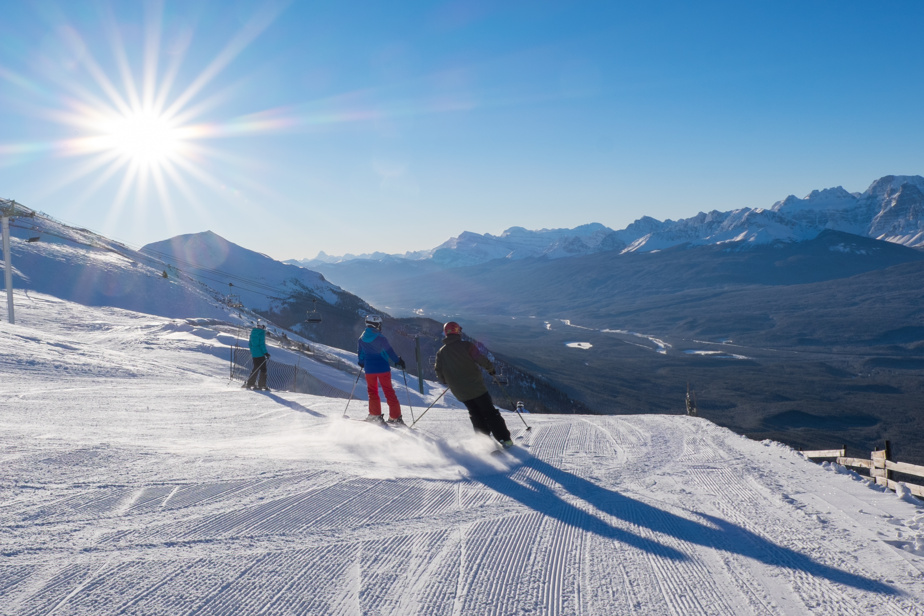Seasonal ticket sales have been a balm for ski resorts in the Rocky Mountains, which experienced a difficult winter in 2020-2021 due to travel restrictions linked to the COVID-19 pandemic.
Michael Ballingal, senior vice president of Big White station in British Columbia, says he’s had one of the best seasons ever despite individual ticket sales down about 80%.
Many area residents decided to buy season tickets because skiing was one of the few sporting activities allowed during the pandemic.
People knew the station would be open. They bought seasonal passes early because they were at least sure they could play the sport,” says Palingal.
Many became acquainted with the sport, and others found their skis or snowboards after being left in a closet for a long time.
More and more new Canadians are becoming interested in sports. A percentage of them fell in love with skiing. We’ve seen many skiers and former snowboarders rediscover the fun of hitting the slopes. This allowed our station to be reborn.
Michael Ballingal, Deputy Director of Big White Station
According to experts, this renewed interest may give hope for a favorable long-term outlook, but it will not help the ski resorts in the short term financially.
Season ticket sales bring in less income than the single daily ticket that a tourist buys. The Western Canada Ski Resorts Association (CWSAA) states that a foreign tourist will spend four to five times the money of a local client.
Experts say it’s foreign visitors who buy ski passes, quality drinks or fancy meals, rent skis or take lessons — all those little extras make the resort and the local economy thrive.
Canadian clients, often arrive with their lunch and don’t need to be familiar with the sport or even the area around the resort.
“For some regions, strong subscription sales are a good thing. But in others, it can mean a significant loss of income,” says Christopher Nicholson, President and CEO of CWSAA.
He adds that it’s the big cities around it, such as Vancouver, Calgary and Edmonton, that will benefit the most from subscription sales, saying that its business model is less dependent on foreign tourists. This is not the case for small communities that will continue to experience economic problems until the return of foreign tourists.
Mr. Nicholson says he doesn’t expect that to happen any time soon. According to him, it will be a long time before the influx of foreigners to the ski resorts returns to pre-pandemic levels.
For Robin Metz, of the School of Hospitality and Tourism at Selkirk College in Nelson, British Columbia, smaller resorts will explore the new subscription sales model to increase their revenue.
NSI Mitz talks about the introduction of 10-ticket season tickets.
She says income from selling ski or snowboard equipment can lead to higher demand for resorts. While it wasn’t hard to find a pair of sleds like a bike in 2020, many items sold out faster than usual.

“Subtly charming problem solver. Extreme tv enthusiast. Web scholar. Evil beer expert. Music nerd. Food junkie.”


